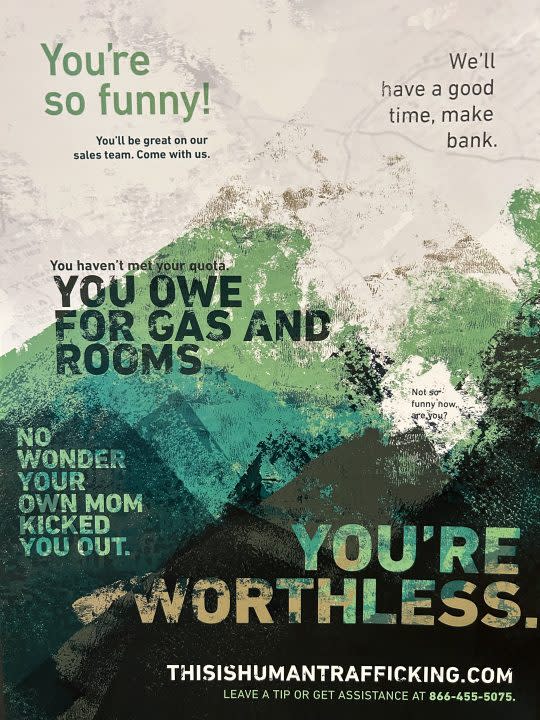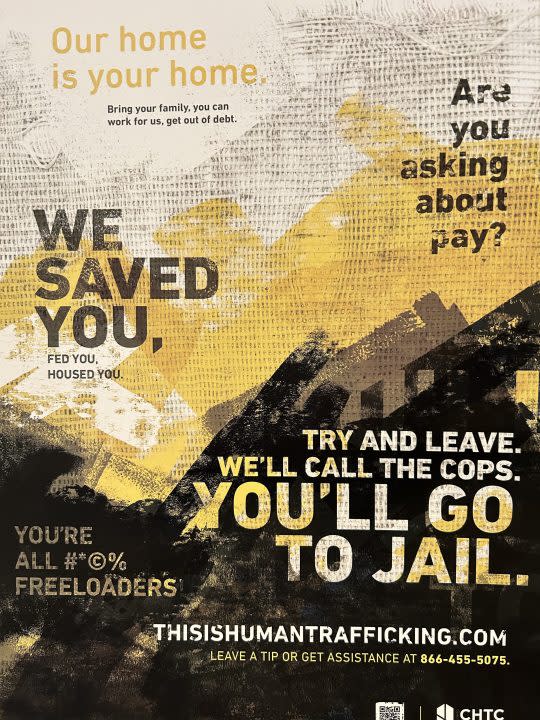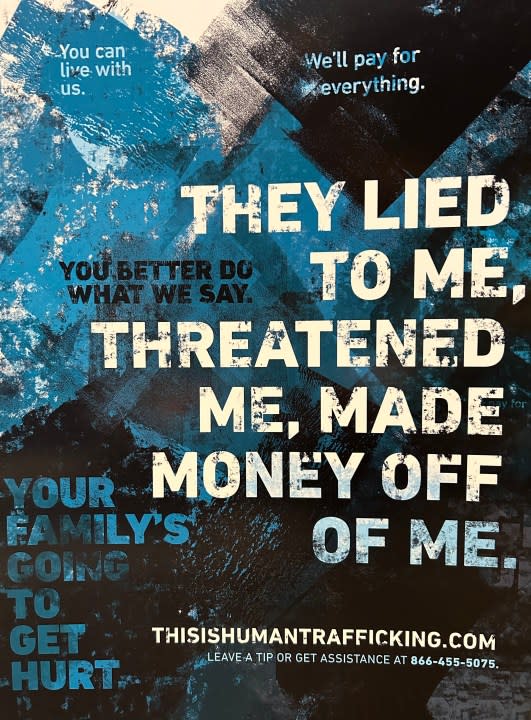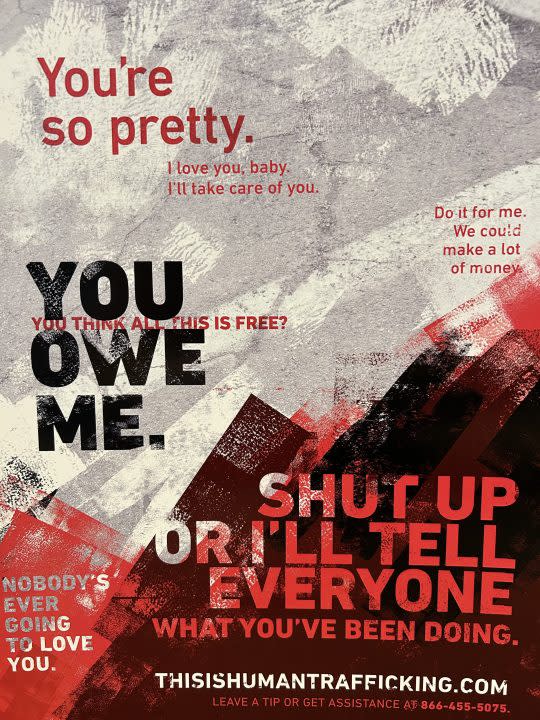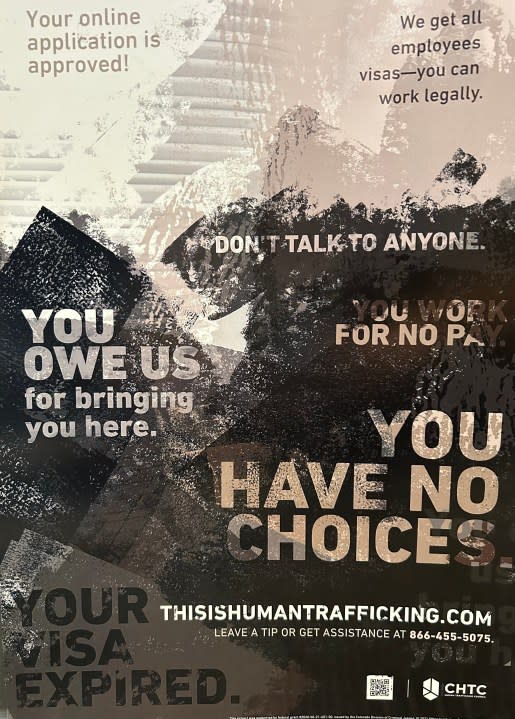Reducing human trafficking in Colorado is a group effort
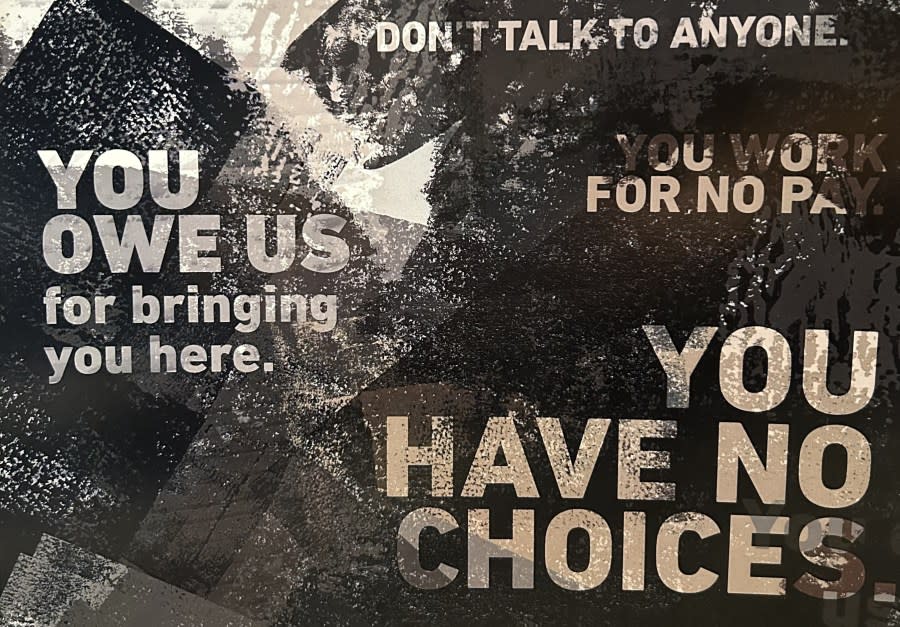
(COLORADO SPRINGS) — Human Trafficking is a growing issue not only in Colorado but nationwide. Data shows that housing insecurity, and other vulnerabilities, are contributing to the problem. Anti-Human Trafficking groups are working hard to make Coloradans aware of the ways trafficking is affecting our community, and how you can make a difference.
Reclaiming Hope held its monthly meeting on Tuesday, March 12 to discuss human trafficking in Colorado.
“Most people have no understanding of how widespread trafficking is,” said Sues Hess, Executive Director of Reclaiming Hope. “It’s in every state, city, town and neighborhood. It’s happening right here in Colorado Springs. Over 60% of people trafficked in the U.S. are trafficked by their own families or significant others. Families are trafficking their own children. Those children don’t realize that it is not normal to be trafficked, as it’s the only life they know until they are removed from that situation.”
Reclaiming Hope created a series of promotional posters that help define the experiences of Human Trafficking survivors. Images of those posters can be seen throughout this article.
Courtesy: Reclaiming Hope
Amanda Finger, co-founder of the Laboratory to Combat Human Trafficking, spoke at Tuesday’s meeting and shared a report from The Colorado Project. The report revealed three key findings.
Housing insecurity and homelessness are a big challenge for survivors of human trafficking in Colorado. People and systems serving human trafficking survivors report that innovation is needed to create more safe housing spaces.
Marginalized groups are especially vulnerable to exploitation. Immigrants, individuals who hold LGBTQ+ identities, tribal communities, and youth experiencing homelessness tend to be targets for exploitation. By addressing the causes of these vulnerabilities at the source, Colorado can reduce instances of human trafficking.
Representation is needed for anti-trafficking initiatives and partnerships, which lack the support necessary to be effective.
Courtesy: Reclaiming Hope
Preston Goff, VP of Global Communications at The Exodus Road spoke to the complex and multifaceted nature of human trafficking, and the challenges that we face in identifying those who are being victimized.
“Human traffickers often operate in the shadows,” Goff said, “and yet trafficked persons are often hidden in plain sight. Many who experience trafficking do not realize they are being trafficked, as traffickers manipulate and coerce their victims to instill fear, dependency, and, in some cases, a sense of loyalty.”
He also said there are signs that we as a community can be on the lookout for. “Key indicators of trafficking can include sudden changes in behavior or appearance, lack of control over personal documents or finances, signs of physical or psychological trauma, and restricted freedom of movement or communication.”
Courtesy: Reclaiming Hope
Goff shared a few examples of how human trafficking in the U.S. can take place.
A perpetrator pressuring someone else to perform sex acts (either in person, or that are filmed and distributed online) in exchange for drugs, money, or favors.
A perpetrator manipulating someone to send nude photos of themselves, which are then traded for pills.
A teen convinced by a “talent agent” that they should model, but in reality is paid or forced to create explicit videos that are sold online.
A teen enticed by an adult online to meet up and perform sexual acts with strangers in exchange for clothes, food, housing, or money.
Reclaiming Hope holds public meetings every second Tuesday of the month, and all are welcome to attend.
For the latest news, weather, sports, and streaming video, head to FOX21 News Colorado.
